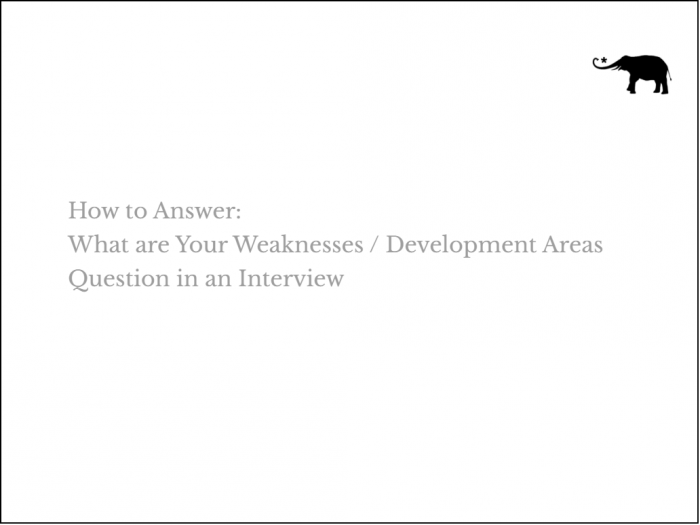In a job interview, it is very common for interviewers to ask about your strengths and weaknesses. The strengths question could be an opportunity to shine a spotlight on your skills and accomplishments. However, addressing the weaknesses question can be tricky.
Why do employers ask about your weaknesses during an interview?
Interviewers ask about your weaknesses because it is not possible to get a complete picture of you by knowing only your strengths. Also, the interviewer wants to know what you can and cannot do and what may be difficult for you on the job.
Another motive behind this question could be to test your self-awareness. When you are self-aware, it shows that you know your weaknesses and are working to improve them. It also reflects your honesty because talking about your weaknesses puts you in a vulnerable position.
Emotional intelligence refers to your ability to understand and manage your emotions to communicate effectively, empathise, overcome difficulties, and defuse conflict. The question about your weaknesses is the interviewer’s way of testing your emotional intelligence.
Your answer about your weaknesses also shows your willingness to improve yourself and learn new things.
How should you answer the question about your weaknesses?
The best way to answer the question about your weaknesses is to be honest. However, being too honest could scare your interviewer, and you could lose your job offer. If you are not honest enough, the interviewer may doubt your credibility. You have to strike the right balance.
You should remember that this question is not meant to get the better of you. It is the interviewer’s way of checking if you are self-aware enough to recognise your flaws.
Here are a few useful tips for answering this question during an interview:
1. Mention qualities that are not important for the job
If you are asked to name your weaknesses during an interview, mention qualities that are not central to the job requirements. For instance, if you are being interviewed for a copywriting or content development job, you could say that your weakness is finance or mathematics. However, if you are interviewing for an accounting job and you say that your weakness is mathematics, you are sure to be rejected.
2. Be positive
When you mention your weaknesses, do so in a positive way. You should be able to present your weaknesses in a way that could be seen as an asset for the job. Avoid using negative words such as failure, weak, or inept. Try and share an example of a weakness that you had and how you have now managed to turn it into a strength. For instance, if your weakness is public speaking, you could add that you have joined a local Toastmasters club to improve your public speaking skills. You could also say that becoming a member has helped you become more confident speaking in front of a large gathering. Sharing recent examples of how you have spoken at meetings or gatherings could be very useful as well.
3. Explain how you plan to overcome your weakness
If you want to improve upon your developmental areas, you need to have a solid action plan. Sharing your action plan with your interviewers can be especially helpful if your weakness is a hard skill. Hard skills refer to quantifiable, job-specific skills like computer skills, creative writing, or advanced mathematics. If you have mentioned your weakness as the inexperience with certain software, you could share that you have been taking online classes to familiarise yourself with the software.
4. Try and stick to work-related weaknesses
When you mention your weaknesses during an interview, ensure that they are business-appropriate. You may want to mention your personal weaknesses, but not all interviewers are interested in them. They are more interested in knowing your weaknesses at the workplace and how you have or are planning to overcome them. You need to ensure that your weaknesses do not affect your job if they decide to hire you.
5. Do not give a rehearsed response
It is important to be well-prepared for an interview. A part of the preparation process is to make a list of commonly-asked questions and prepare answers to them. You should be prepared to answer a question about your weaknesses, but ensure that it does not sound rehearsed. You can modify your answer according to the conversation that you have going with the interviewer. If your answer sounds rehearsed, you are more likely to come across as inauthentic.
6. Avoid cliched answers
The most common answers to the weaknesses question are “ I am a workaholic”, or “I am a perfectionist.” Interviewers may have heard these answers hundreds of times. If you give such an answer, you will be no different than the other candidates that the interviewers have already spoken to.
Answering a question about your weaknesses can be challenging. Everyone has areas of improvement. You can use this question as an opportunity to show how you have overcome challenges in the past or are working on right now. This is bound to impress an employer.












Read 0 comments and reply